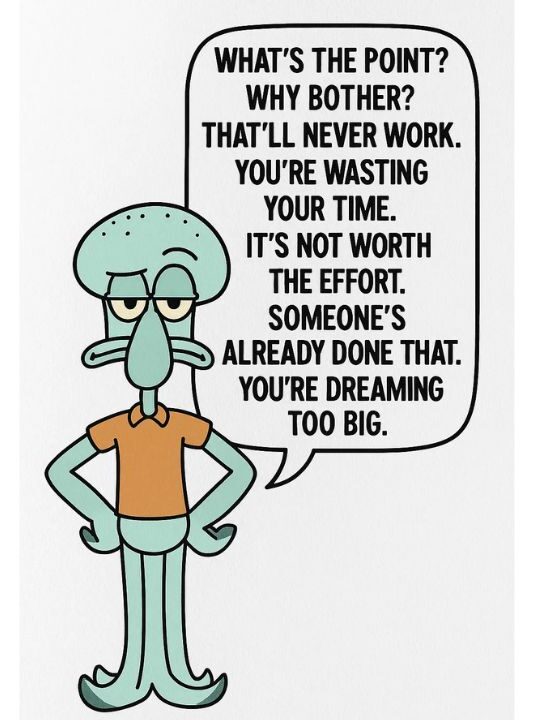If you’ve ever hesitated to post online because you were worried about what a colleague might say, you might have a Squidward in your life. For reference, Squidward is the a grumpy, turquoise octopus from the animated series SpongeBob SquarePants.
You know the type: glass half empty, always ready with a dig, but never the one doing the actual work.
They roll their eyes at auction videos, mock your content, and throw in a sarcastic comment every time you try something new.
It might seem like background noise, but over time, their voice can get louder than your own.

When You Start Out, You Mirror
Most people in sales start out by mirroring the person they report to.
That’s not a flaw; it’s just how we learn when we’re new.
But after a couple of years, it’s time to step into your own brand.
That means owning your style, your image, and your approach in the marketplace.
That evolution becomes harder when you’re surrounded by people who either don’t support your growth or feel threatened by it.
Confidence vs. Criticism
I used to work with a Squidward.
Every time I letterbox dropped, posted something, or filmed an auction video, they had something to say. Always negative. Always deflating.
The ironic part? They didn’t have a sales business anyone would want to model, not then and not now.
Still, their words stuck. I found myself posting less, shrinking back, and second guessing the very strategies I knew were building momentum.
Until one day, I realised something simple but powerful: their opinions didn’t matter.
They didn’t pay my bills. They weren’t building the life I wanted for my family.
Posting with Purpose
Maybe it’s maturity. Maybe it’s experience. But eventually, every agent learns that putting yourself out there is part of the job.
Showing up online and doing it consistently isn’t about ego. It’s about connection.
It’s about growth. And it works.
Confidence and consistency compound. You can’t always control the feedback, but you can control how often and how authentically you show up.
Check Your Environment
The right leader gives you permission to try things, to experiment, and to build visibility without fear of judgment.
The wrong one quietly stifles your momentum.
So if you’re in a place that makes you play small, discourages you from marketing yourself, or offers criticism without value, it’s time to ask yourself a serious question: Is this really the environment that’s going to get me where I want to go?

